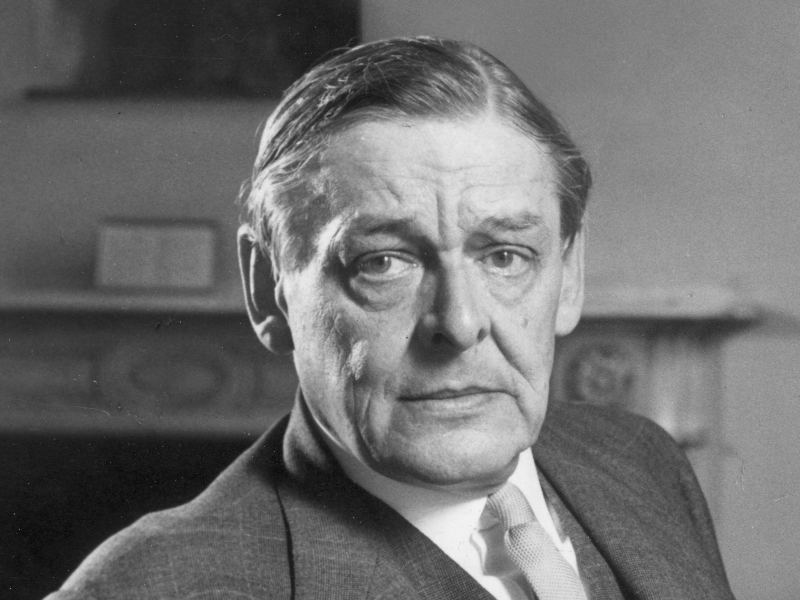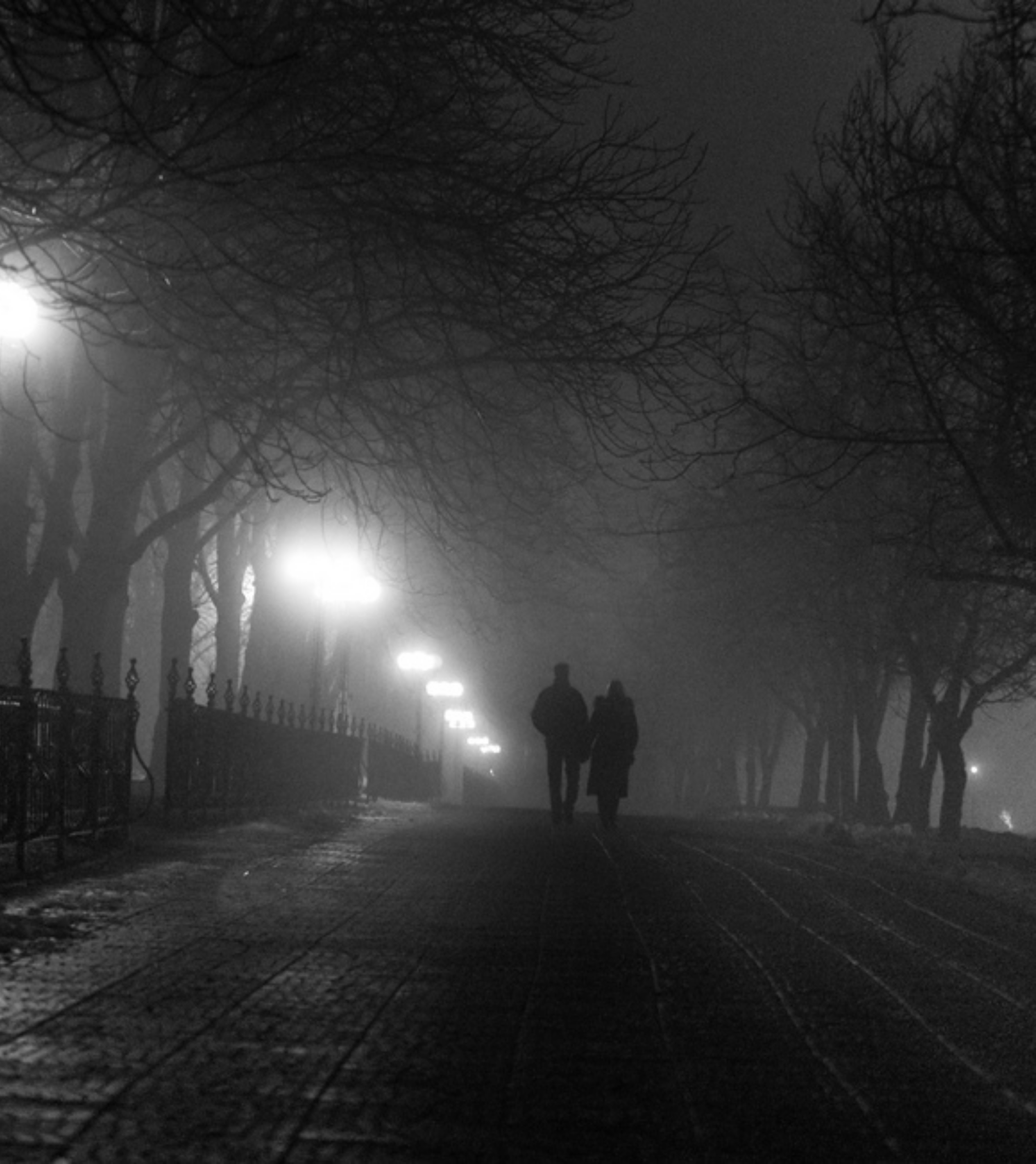T.S. Eliot

Thomas Stearns "T. S." Eliot (26 September 1888 –
4 January 1965) was a British essayist, publisher, playwright, literary and social critic, and "one of the twentieth century's major poets". He moved from his native United States to England in 1914 at the age of 25, settling, working, and marrying there.
Eliot attracted widespread attention for his poem "The Love Song of J. Alfred Prufrock" (1915), which was seen as a masterpiece of the Modernist movement, soon followed by "The Waste Land" (1922) and "The Hollow Men" (1925). He was awarded the Nobel Prize in Literature in 1948, "for his outstanding, pioneer contribution to present-day poetry".
The Love Song of J. Alfred Prufrock (excerpt)
Let us go then,
you
and
I,
When the evening is s p r e a d o u t against the sky
Like a patient etherized upon a table;
Let us go,
through certain half-deserted streets,
The muttering retreats
Of restless nights in one-night cheap hotels
And sawdust restaurants with oyster-shells:
Streets that follow like a tedious argument
Of insidious intent
To lead you to an overwhelming question ...
Oh, do not ask,
“What
is
it?”
Let us go and make our visit.
In the room the women come and go
Talking of Michelangelo.
The yellow fog that rubs its back upon the window-panes,
The yellow smoke that rubs its muzzle on the window-panes,
Licked its tongue into the corners of the evening,
Lingered upon the pools that stand in drains,
Let fall upon its back the soot that f
a
l
l
s from chimneys,
ea
Slipped by the terrace, made a sudden l p,
And seeing that it was a soft October night,
Curled once about the house, and fell asleep.



